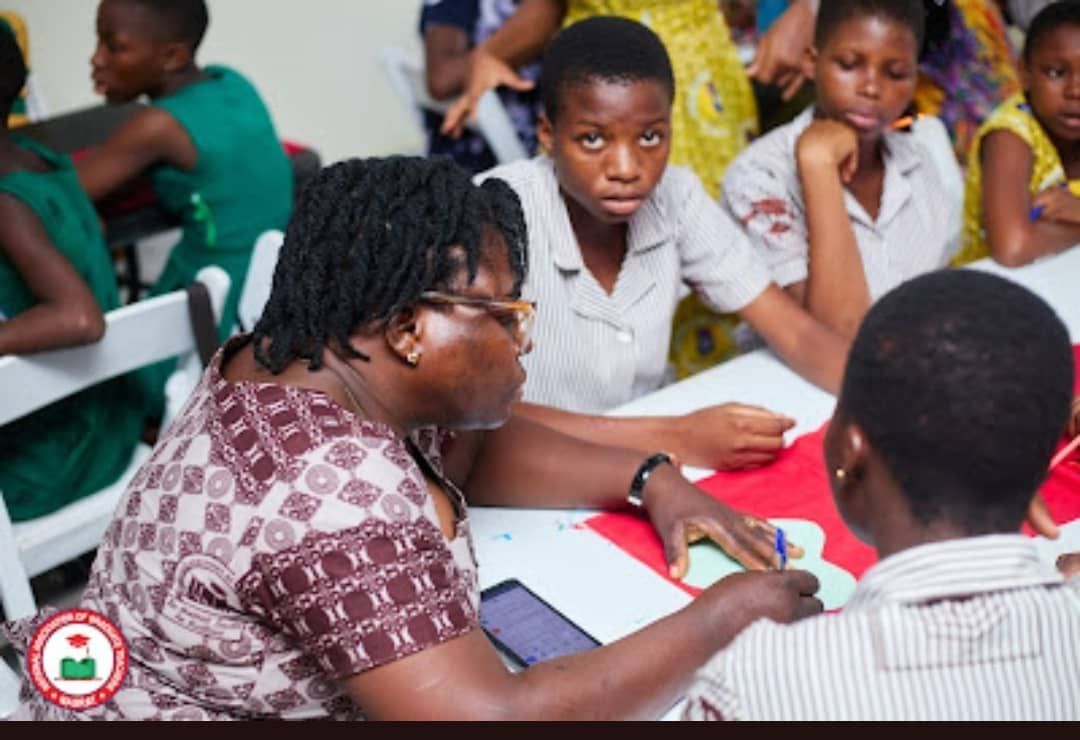Positive Periods and Prevention of Gender Based Violence Programme in Ghana
This February, the National Association of Graduate Teachers (NAGRAT) in partnership with the Foundation delivered training for 60 teachers and 60 students in the Volta region. The cohort represented 22 schools. The training was facilitated by Marie Antoinette Corr GS of GTU (Gambia Teachers Union) and Rebecca Aidoo (NAGRAT).
The training was opened by Mama Adom Dakesi IV, queen mother of Gbi Kpoeta Traditional area in Hohoe and here is her speech.

NAGRAT Regional Chair, all dignitaries present, lovely students, Ladies and gentlemen, all protocols observed.
Today, I am reminded of the profound importance of addressing a topic that affects the health and dignity of women and girls worldwide: menstrual hygiene.
Menstrual hygiene is not just a matter of convenience; it is a fundamental aspect of women's health and well-being. It encompasses the practices and products necessary to manage menstruation in a safe and hygienic manner. From using clean and absorbent materials to maintaining proper personal hygiene, menstrual hygiene plays a crucial role in ensuring the health and dignity of women and girls.
Yet, despite its significance, many women and girls face barriers in accessing the necessary resources to manage their menstruation safely. The current surge in the price of sanitary pads has made it increasingly difficult for many to afford these essential products. This is a stark reality that we cannot ignore.
However, amidst these challenges, there is hope. I commend the organizers of this program for their initiative in teaching young girls how to make reusable sanitary pads. This innovative approach not only provides a sustainable solution but also empowers girls with the knowledge and skills to take control of their menstrual health.
But our efforts cannot stop here. We must come together as government, NGOs, and private organizations to ensure that all women and girls have access to affordable and sustainable menstrual hygiene products. Education and access are the cornerstones of progress in this regard, and we must spare no effort in ensuring that they are readily available to those in need.
Moreover, let us not forget the broader implications of poor menstrual hygiene. Beyond the physical health risks, there is also the insidious impact of social stigma and exclusion. In many communities, menstruation is still considered taboo, leading to discrimination and shame for those who menstruate. This must change, and it begins with education and awareness.
In conclusion, let me leave you with this thought: there is no limit to what you can achieve, regardless of your gender or circumstances. To all the young girls listening today, remember that you hold the power to shape your own future. With determination and resilience, you can overcome any obstacle and realize your dreams. As ambassadors let us try to teach your friends and family how to make reusable sanitary pads.
Let us continue to work together in pursuit of a world where menstrual hygiene is no longer a barrier but a basic human right.
Thank you.




